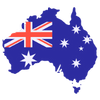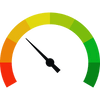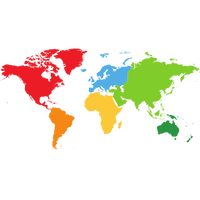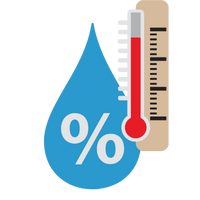


Published: Monday, 21th October 2024
Comparedoo.com welcomes you to explore the detailed comparison between Mali and Australia.
Dive in and compare them across different aspects like cost of living, standard of living, geography, demographics, environment, society, economy, health factors and many more.
Enjoy exploring!








 Indicators  |  Mali  |  Australia  |
|---|---|---|
Official Name  | Republic of Mali | Commonwealth of Australia |
Continent  | Africa | Oceania |
Landlocked Status  | Landlocked | Not Landlocked |
Capital City  | Bamako | Canberra |
Latitude  | 17° 34′ 0″ N | 27° 0′ 0″ S |
Longitude  | 3° 59′ 0″ W | 133° 0′ 0″ E |
The total area of Mali is 1,241,238 sq km, and the total area of Australia is 7,741,220 sq km. Mali is smaller than Australia by 6,499,982 sq km. Mali is around 6.24 times smaller than Australia.
 Indicators  |  Mali  |  Australia  |
|---|---|---|
Area in Square Kilometers  | 1,241,238 Sq km | 7,741,220 Sq km |
| Difference | [ 6,499,982 Square Kilometers] | |
Area in Square Mile  | 479,245 Sq Mile | 2,988,900 Sq Mile |
| Difference | [ 2,509,655 Square Mile] | |
Water % in Area  | 1.6 % | 1.79 % |
 Indicators  |  Mali  |  Australia  |
|---|---|---|
Largest City  | Bamako | Sydney (metropolitan) Melbourne (urban) |
Demonyms  | Malian, Malinese | Australian |
Official Languages  | 13 National Languages | None National Language: English |
Government Status  | Unitary semi-presidential republic | Federal parliamentary constitutional monarchy |
Major Religion  | Islam | Christianity |
Major Religion Percentage  | 95 % | 43.9 % |
The people of Mali are called Malian, Malinese, and the people of Australia are called Australian.
 Indicators  |  Mali  |  Australia  |
|---|---|---|
Currency Name  | West African CFA franc | Australian dollar |
Currency Symbol  | XOF | AUD |
Driving Side  | Right | Left |
Calling Code  | +223 | +61 |
Internet TLD  | .ml | .au |
Start of Week  | Monday | Monday |
ISO 3166 Code  | ML | AU |
 Indicators  |  Mali  |  Australia  |
|---|---|---|
National Anthem Title (Native)  | Le Mali | Advance Australia Fair |
National Anthem Title (In English)  | Mali | Advance Australia Fair |
National Animal  | Vulture | Red Kangaroo |
National Bird  | Yet to Update | Emu |
National Flower  | None | Golden wattle |
National Sport  | Football | Australian Rules Football |
National Colors  | Green, yellow and red | Green and gold |
 Indicators  |  Mali  |  Australia  |
|---|---|---|
Current Date  | Saturday, 5th April, 2025 | Saturday, 5th April, 2025 |
Current Time  | 12:23 AM | 11:23 AM |
Timezones  | UTC (GMT) | UTC+8; +9.5; +10 and UTC+10.5; +11 |
Current Timezone  | UTC (GMT) | (AEST, ACST, AWST) |
Daylight Saving Time  | DST Not Observed | DST Observed |
Daylight Saving Time Start  | DST Not Observed | Sunday, 7th April, 2024 |
Daylight Saving Time End  | DST Not Observed | Sunday, 6th October, 2024 |
Daylight Saving Time Duration  | DST Not Observed | 182 days |
The current time and date in Mali is [12:23 AM], [Saturday, 5th April, 2025 ].
The current time and date in Australia is [11:23 AM], [Saturday, 5th April, 2025].
Mali is [ 11 hours ] behind of Australia.
Based on the elaboration of latest World Bank Data, the total population of Mali as of 2023 is estimated to be around 23,293,698, and the total population of Australia as of 2023 is estimated to be around 26,638,544.
As per the above data, we can say that in the year 2023, Mali had 3,344,846 less people than Australia.




The annual Population Growth in Mali is 3.20% and the annual population growth in Australia is 1.42%.
 Indicators  |  Mali  |  Australia  |
|---|---|---|
Age ( 0 - 14 ) (Year: 2023)  | 31.7 % | 14.1 % |
Age ( 15 - 64 ) (Year: 2023)  | 66 % | 71.1 % |
Age ( 65+ ) (Year: 2023)  | 2.33 % | 14.8 % |
 Indicators  |  Mali  |  Australia  |
|---|---|---|
| [ LATEST WEATHER DATA ] | ||
Place  | Bamako | Canberra |
Current Time  | 12:23 AM | 11:23 AM |
Current Weather  | Overcast Clouds | Clear Sky |
Current Temperature  | 31.23 Degree Celsius | 16.76 Degree Celsius |
Wind Speed  | 2.06 km/hr, 50 Degree | 9.39 km/hr, 326 Degree |
Humidity  | 33 % | 43 % |
 Indicators  |  Mali  |  Australia  |
|---|---|---|
Fertility Rate (2023)  | 5.87 (Births Per Woman) | 1.63 (Births Per Woman) |
Mortality Rate (Adult Male) (2023)  | 305.84 (Per 1000 Male Adults) | 73.02 (Per 1000 Male Adults) |
Mortality Rate (Adult Female) (2023)  | 248.28 (Per 1000 Female Adults) | 41.65 (Per 1000 Female Adults) |
Infant Mortality Rate (2023)  | 60.1 (Per 1000 Live Births) | 3.2 (Per 1000 Live Births) |
 Indicators  |  Mali  |  Australia  |
|---|---|---|
Top Cause of Death (2023)  | Neonatal conditions (117.6 people per 100K population) | Ischaemic heart disease (85.5 people per 100K population) |
Lowest Cause of Death (2023)  | Road injury ( 22.7 people per 100K population) | Breast cancer ( 13.5 people per 100K population) |
Road Traffic Deaths (2023)  | 20.2 (people per 100K population) | 4.5 (people per 100K population) |
Suicide Deaths (2023)  | 4.1 (Number of suicide deaths per 100K people) | 12.5 (Number of suicide deaths per 100K people) |
New HIV Infections (2023)  | 0.28 (HIV infections per 1000 people) | 0.01 (HIV infections per 1000 people) |
The leading cause of death in Mali, is [ Neonatal conditions ]. Around 117.6 people per 100,000 people in Mali, are dying of Neonatal conditions.
Similarly, around 85.5 people per 100,000 people in Australia, are dying of Ischaemic heart disease, as it is the leading cause of death in there.
The government of Mali, spent [ 4.47% ] of the amount of the Gross Domestic Product (GDP) in health sectors in the year 2023.
Likewise, the government of Australia, spent [ 10.54% ] of the amount of the Gross Domestic Product (GDP) in health sectors in the year 2023.
 Indicators  |  Mali  |  Australia  |
|---|---|---|
Prevalance Of Hypertension (2023)  | 34.6 (Percentage of adults [30-79] with hypertension) | 29.3 (Percentage of adults [30-79] with hypertension) |
Adult Obesity (2023)  | 11.4% (Percentage of Obesity in adults) | 30.2% (Percentage of Obesity in adults) |
Pure Alcohol Consumption (2023)  | 4.35 Liters (per adult over a calendar year) | 10.09 Liters (per adult over a calendar year) |
Tobacco Consumption (2023)  | 9% (Used by people aged 15 and above) | 10% (Used by people aged 15 and above) |
As per the data from the World Health Organization (WHO), people living in Mali, are 2.65 times less likely to be obese compared to the people living in Australia.
We hope you enjoyed the detailed guide on the general comparison between Mali and Australia.
For more side-by-side comparsion between Countries, States and Cities, you can use the search box above or click the links below.
The Comparedoo.com family sincerely appreciates your time with us. We look forward to seeing you on our other pages.